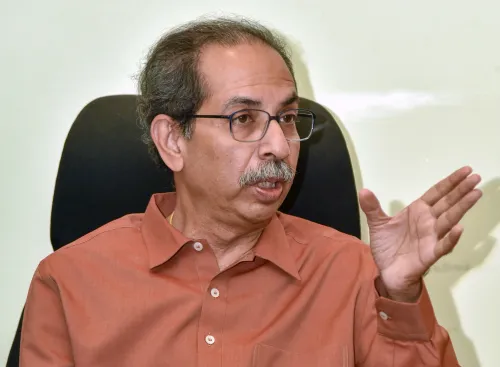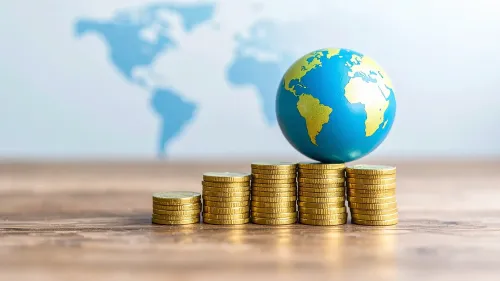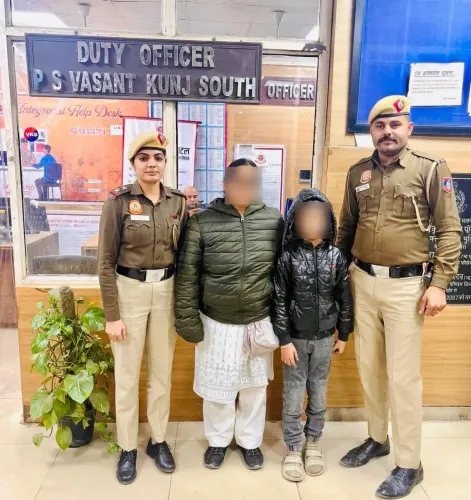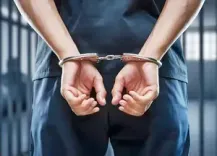Can India-US Relations Be Mended? Insights from Congresswoman Deborah Ross (IANS Exclusive)
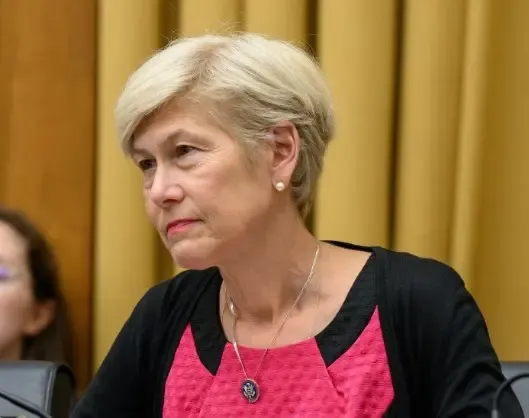
Synopsis
Key Takeaways
- Congresswoman Deborah Ross supports mending India-US relations.
- Trade negotiations between the two nations have resumed.
- Political violence must be addressed by elected officials.
- Ross advocates for Indian students and H1-B visa expansion.
- Federal protections for places of worship are critical.
Washington, September 12 (NationPress) Congresswoman Deborah Ross, who serves as co-chair of the Congressional Study Group on India (CSGI) and is a staunch advocate for strengthening India-US relations, expressed optimism that the bilateral partnership can be "mended."
In an exclusive conversation with IANS in Washington, Ross conveyed that she was "encouraged" by the resumption of trade discussions between the two nations. She also commented on the recent murder of conservative commentator Charlie Kirk, stating that "violence has no place in our political discourse."
Deborah Ross, a Democratic Representative from North Carolina, is a member of the House Judiciary Committee and the House Committee on Space, Science, and Technology.
Here are some highlights from the interview:
IANS: What is your response to the assassination of Charlie Kirk and the increase in political violence?
Ross: First and foremost, violence is unacceptable in our political discussions. The heated rhetoric has led some to resort to violence, a trend we've seen before.
More than a year ago, there was an assassination attempt on then-candidate and now President Trump. We’ve also witnessed the assassination of Minnesota lawmakers. This is a serious issue. We, as elected officials, must take responsibility for toning down the rhetoric and setting a better example, including the President, who has, at times, incited violence.
IANS: You've been a strong advocate for India-US relations. How do you view the Trump administration's approach to India following the announcement of resumed trade talks?
Ross: I find it confusing, as do many others, including Indian leaders. However, I am hopeful that dialogue has resumed. After three decades of positive engagement, we cannot afford to alienate India, pushing them towards Russia and China.
The recent visit of the Chinese Premier hosting both India and Russia has made a significant impact, prompting a need to rekindle our relationship. This collaboration is vital not only for the Indian diaspora but also for global democracy, economic ties, and innovation.
IANS: Indian students constitute the largest group of international students in the U.S., contributing $9 billion to the economy annually. As a leader of a bipartisan group advocating for Indian students facing visa delays, what progress has been made?
Ross: I haven't received direct feedback from Secretary Rubio, but I've engaged with various educational institutions working to expedite visas for students.
Last week, I visited Duke University, where many Indian students are enrolled. Discussions included how institutions are managing visa issues and accommodating students who may miss the start of the school year.
IANS: The Trump administration has proposed changes to the H1-B visa process. What are your thoughts?
Ross: I have been a strong supporter, along with many colleagues, of expanding the H1-B visa program and removing caps. The House has passed legislation advocating this, but it stalled in the Senate. This expansion is crucial as the U.S. is not producing enough qualified candidates for high-skilled positions.
Enhancing cooperation with democratic nations like India is essential for mutual benefit.
IANS: In 2023, you and Ro Khanna were part of a Congressional delegation visiting the Indian Navy's Western Command in Mumbai. Do you believe tariff disputes have negatively impacted India-US ties in other areas, such as defense?
Ross: It has, at least in the short term. However, with trade talks resuming, I am optimistic we will repair the damage. I hope to lead another bipartisan delegation to India in February, which will include members from military and intelligence committees, highlighting Congress’s commitment to enhancing our relationship.
IANS: Recent images of PM Modi with Presidents Putin and Xi during the SCO Summit have sparked concerns that the Trump administration has alienated India. Do you concur?
Ross: I believe it served as a wake-up call for the administration. It demonstrated that India has alternatives, albeit poor ones. My hope is that we can restore our relationship.
IANS: Some stakeholders argue that Democrats have not been vocal enough in defending the US-India partnership amidst criticisms from the Trump administration. What’s your stance?
Ross: From my perspective, Democrats have done significant work. I am part of a new bipartisan study group focused on India, and my Republican colleague and I were vocal about its importance.
IANS: We’ve observed an increase in targeted attacks on places of worship, including Hindu temples. How do you respond?
Ross: There are forces trying to divide us by blaming others for their problems. I have taken two steps to address this: securing grants for security assistance for places of worship and advocating against repealing federal protections for these sites.


